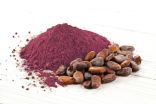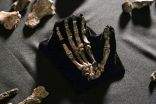(Press-News.org) Two recently published studies in the journals Age and the British Journal of Nutrition (BJN) demonstrate that consuming cocoa flavanols improves cardiovascular function and lessens the burden on the heart that comes with the ageing and stiffening of arteries. The studies also provide novel data to indicate that intake of cocoa flavanols reduces the risk of developing cardiovascular disease (CVD).
As we age, our blood vessels become less flexible and less able to expand to let blood flow and circulate normally, and the risk of hypertension also increases. Arterial stiffness and blood vessel dysfunction are linked with cardiovascular disease -- the number one cause of deaths worldwide. "With the world population getting older, the incidence of cardiovascular disease, heart attacks and stroke will only increase," says Professor Malte Kelm, Professor of Cardiology, Pulmonary Diseases and Vascular Medicine at University Hospital Düsseldorf and Scientific Director of FLAVIOLA. "It is therefore pivotal that we understand the positive impact diet can have on cardiovascular disease risk. As part of this, we want to know what role flavanol-containing foods could play in maintaining the health of the heart and blood vessels."
Cocoa flavanols are plant-derived bioactives from the cacao bean. Dietary intake of flavanols has been shown to have a beneficial effect on cardiovascular health but the compounds are often destroyed during normal food processing. Earlier studies have demonstrated that cocoa flavanol intake improves the elasticity of blood vessels and lowers blood pressure -- but, for the most part, these investigations have focused on high-risk individuals like smokers and people that have already been diagnosed with conditions like hypertension and coronary heart disease. These two studies in Age and BJN are the first to look at the different effects dietary cocoa flavanols can have on the blood vessels of healthy, low-risk individuals with no signs or symptoms of cardiovascular disease.
Cocoa flavanols increase blood vessel flexibility and lower blood pressure
In the study published in Age, two groups of 22 young ( END
Cocoa flavanols lower blood pressure and increase blood vessel function in healthy people
New studies by the EU-funded FLAVIOLA research consortium show that cocoa flavanols could help maintain cardiovascular health as we age
2015-09-10
ELSE PRESS RELEASES FROM THIS DATE:
Less is more
2015-09-10
This news release is available in German. Protein labeling with synthetic fluorescent probes is a key technology in chemical biology and biomedical research. The target proximity achieved by small-molecule probes is essential to exploit the full potential of super-resolution fluorescence microscopy. Single-molecule localization techniques provide high spatial resolution by reporting on the position of the fluorophore and thus only indirectly on the target molecule itself. Large labels, such as antibodies, can misleadingly position a fluorophore tens of nanometers away ...
New species of human relative discovered
2015-09-10
An international research team, which includes NYU anthropologists Scott Williams and Myra Laird, has discovered a new species of a human relative. Homo naledi, uncovered in a cave outside of Johannesburg, South Africa, sheds light on the diversity of our genus and possibly its origin.
"This discovery is unprecedented in the sheer number of hominins collected from such a small area in the virtual absence of other animal remains," says Williams, an assistant professor in NYU's Department of Anthropology. "That makes this site unique. Moreover, the announcement describes ...
New DNA testing for liver cancer could improve survival
2015-09-10
Bethesda, MD (Sept. 10, 2015) -- Detection of small fragments of tumor DNA, known as circulating tumor DNA, in a patient's pre-surgery serum samples predicts early recurrence of hepatocellular carcinoma and may guide treatment, according to a study1 published in Cellular and Molecular Gastroenterology and Hepatology, the basic and translational science journal of the American Gastroenterological Association. Hepatocellular carcinoma -- the most common type of liver cancer -- is the third leading cause of cancer deaths worldwide.
"We uncovered that circulating tumor DNA ...
How genetic testing can improve care for children with epilepsy
2015-09-10
The steps involved in evaluating and diagnosing patients with epilepsy are complicated. In a new and extensive literature review of available information, experts provide insights on the valuable role of genetic testing in the diagnosis and care of pediatric epilepsy.
Epilepsy is a common neurological disorder that affects up to 1.5% of the world's population and is more commonly diagnosed in children than adults. Most cases of epilepsy have been considered "idiopathic" or of unknown cause, but recent advances in genetic testing are providing insights on the potential ...
First new cache-coherence mechanism in 30 years
2015-09-10
In a modern, multicore chip, every core -- or processor -- has its own small memory cache, where it stores frequently used data. But the chip also has a larger, shared cache, which all the cores can access.
If one core tries to update data in the shared cache, other cores working on the same data need to know. So the shared cache keeps a directory of which cores have copies of which data.
That directory takes up a significant chunk of memory: In a 64-core chip, it might be 12 percent of the shared cache. And that percentage will only increase with the core count. Envisioned ...
Fossil trove adds a new limb to human family tree
2015-09-10
MADISON, Wis. -- Working in a cave complex deep beneath South Africa's Malmani dolomites, an international team of scientists has brought to light an unprecedented trove of hominin fossils -- more than 1,500 well-preserved bones and teeth -- representing the largest, most complete set of such remains found to date in Africa.
The discovery of the fossils, cached in a barely accessible chamber in a subterranean labyrinth not far from Johannesburg, adds a new branch to the human family tree, a creature dubbed Homo naledi.
The remains, scientists believe, could only have ...
AGA recommends all patients with colorectal cancer get tested for Lynch syndrome
2015-09-10
Bethesda, MD (Sept. 10, 2015) --All colorectal cancer patients should undergo tumor testing to see if they carry Lynch syndrome, the most common inherited cause of colorectal cancer, according to a new guideline1 published in Gastroenterology, the official journal of the American Gastroenterological Association.
"Approximately 50,000 Americans are expected to die from colorectal cancer this year, and hereditary syndromes account for a small, but important fraction of those diagnoses," said Joel H. Rubenstein, MD, AGAF, lead author of the guideline, research scientist ...
Financial distress can hinder success of academically prepared minority students
2015-09-10
A new study of more than 500 Black and Latino college students has confirmed that many encounter obstacles after enrolling in college without adequate financial resources.
"Students were surveyed in the fall, winter and spring of freshman year," said Micere Keels, associate professor in comparative human development at the University of Chicago, who led the study. "At each time-point, approximately 35 percent reported having difficulty paying their bills, being upset that they did not have enough money and being concerned that they would not be able to afford to complete ...
Cancer preventative surgery could become a thing of the past, new research suggests
2015-09-10
Amsterdam, September 10, 2015 - Surgery to remove the breasts of women at increased risk of developing breast cancer may not be necessary in the future, according to research published in EBioMedicine. Two new studies looking at the effect the menstrual cycle has on the development of breast and ovarian cancer reveal alternative prevention strategies that may render surgery unnecessary.
Breast cancer is the most common cancer in women worldwide and ovarian cancer is the deadliest gynaecological cancer. Women who have inherited mutations in genes called BRCA1 and BRCA2 ...
New species of human relative discovered in S.A. cave
2015-09-10
The discovery of a new species of human relative was announced today, 10 September 2015, by the University of the Witwatersrand (Wits University), the National Geographic Society and the Department of Science and Technology (DST) and the National Research Foundation of South Africa (NRF).
Besides shedding light on the origins and diversity of our genus, the new species, Homo naledi, appears to have intentionally deposited bodies of its dead in a remote cave chamber, a behaviour previously thought limited to humans.
Consisting of more than 1 550 numbered fossil elements, ...
LAST 30 PRESS RELEASES:
New knowledge on heritability paves the way for better treatment of people with chronic inflammatory bowel disease
Under the Lens: Microbiologists Nicola Holden and Gil Domingue weigh in on the raw milk debate
Science reveals why you can’t resist a snack – even when you’re full
Kidney cancer study finds belzutifan plus pembrolizumab post-surgery helps patients at high risk for relapse stay cancer-free longer
Alkali cation effects in electrochemical carbon dioxide reduction
Test platforms for charging wireless cars now fit on a bench
$3 million NIH grant funds national study of Medicare Advantage’s benefit expansion into social supports
Amplified Sciences achieves CAP accreditation for cutting-edge diagnostic lab
Fred Hutch announces 12 recipients of the annual Harold M. Weintraub Graduate Student Award
Native forest litter helps rebuild soil life in post-mining landscapes
Mountain soils in arid regions may emit more greenhouse gas as climate shifts, new study finds
Pairing biochar with other soil amendments could unlock stronger gains in soil health
Why do we get a skip in our step when we’re happy? Thank dopamine
UC Irvine scientists uncover cellular mechanism behind muscle repair
Platform to map living brain noninvasively takes next big step
Stress-testing the Cascadia Subduction Zone reveals variability that could impact how earthquakes spread
We may be underestimating the true carbon cost of northern wildfires
Blood test predicts which bladder cancer patients may safely skip surgery
Kennesaw State's Vijay Anand honored as National Academy of Inventors Senior Member
Recovery from whaling reveals the role of age in Humpback reproduction
Can the canny tick help prevent disease like MS and cancer?
Newcomer children show lower rates of emergency department use for non‑urgent conditions, study finds
Cognitive and neuropsychiatric function in former American football players
From trash to climate tech: rubber gloves find new life as carbon capturers materials
A step towards needed treatments for hantaviruses in new molecular map
Boys are more motivated, while girls are more compassionate?
Study identifies opposing roles for IL6 and IL6R in long-term mortality
AI accurately spots medical disorder from privacy-conscious hand images
Transient Pauli blocking for broadband ultrafast optical switching
Political polarization can spur CO2 emissions, stymie climate action
[Press-News.org] Cocoa flavanols lower blood pressure and increase blood vessel function in healthy peopleNew studies by the EU-funded FLAVIOLA research consortium show that cocoa flavanols could help maintain cardiovascular health as we age


